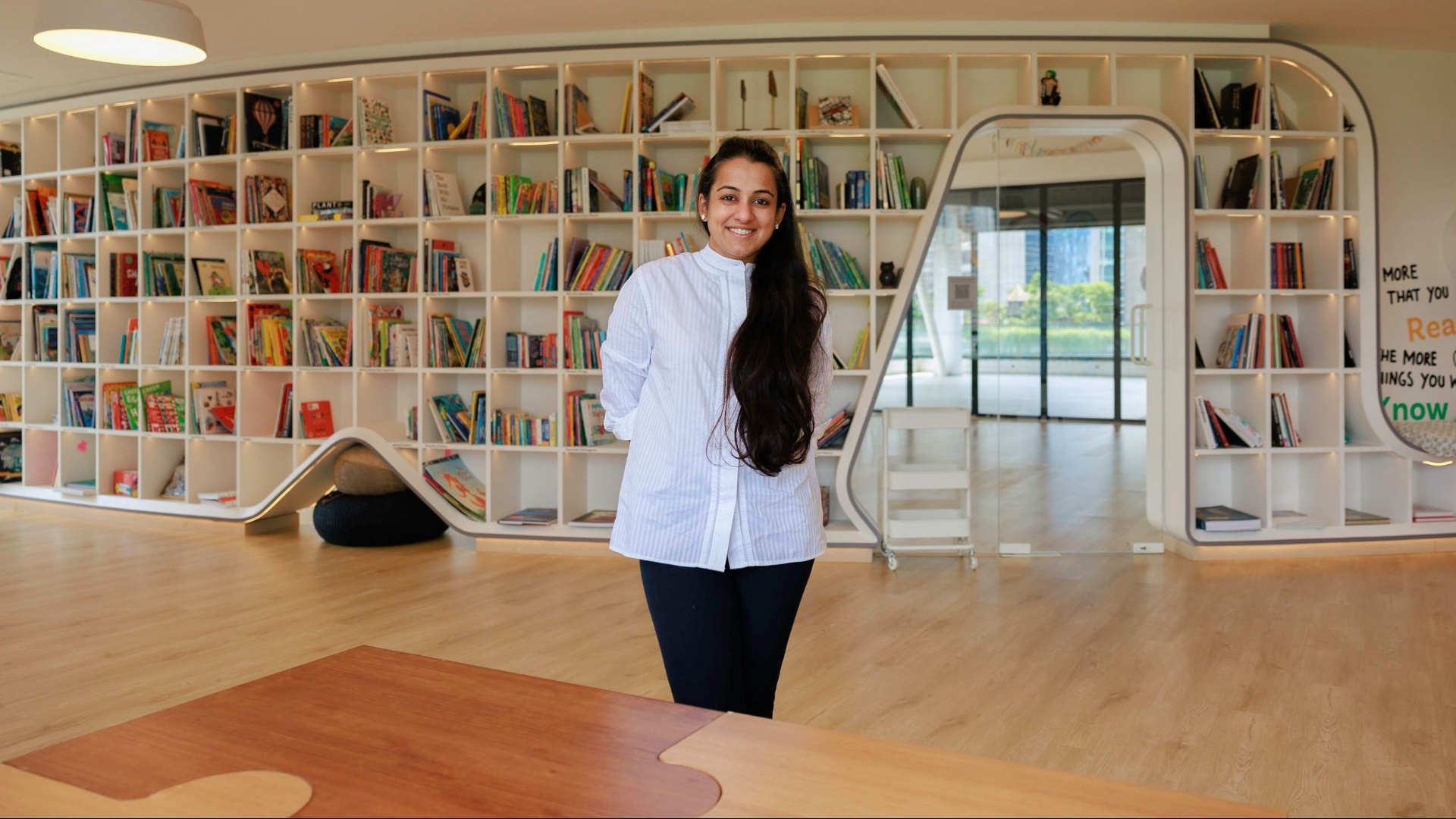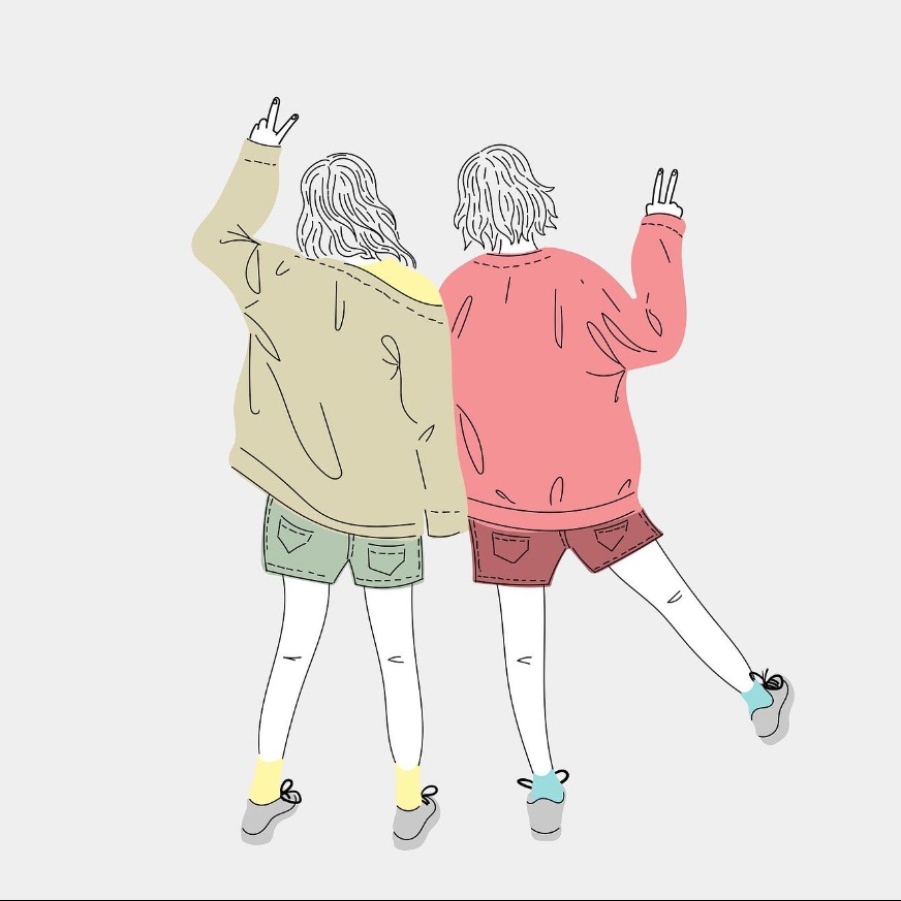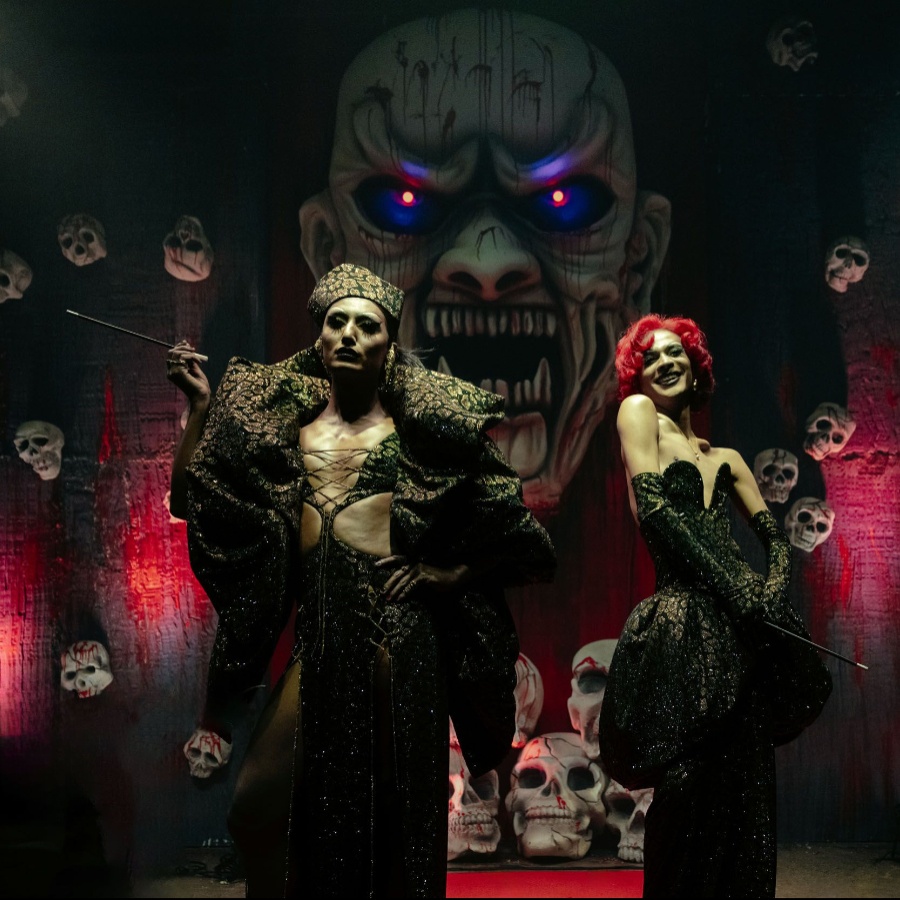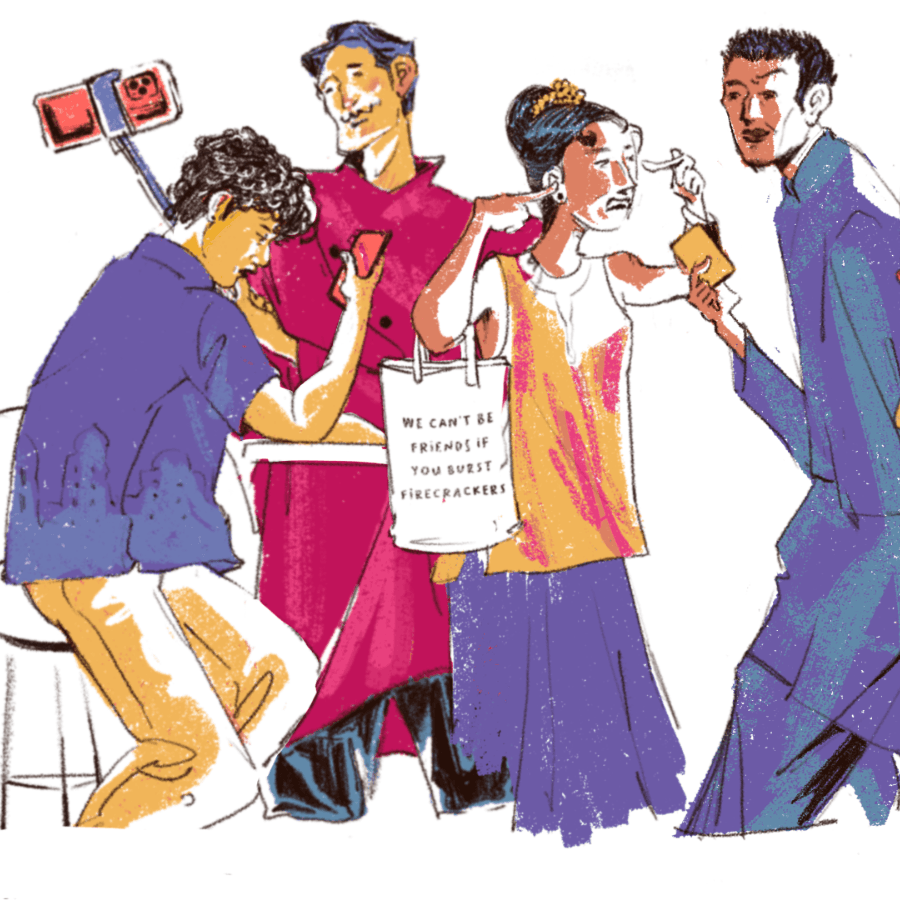It’s a rainy Thursday morning when I walk into the expansive lobby of the Museum of Solutions (MuSo) in Mumbai’s Lower Parel. It’s only 11 am, but the entrance, which often doubles up as an amphitheatre, is buzzing. There’s a summer camp in session; a group of 10 year olds is celebrating a birthday; and several sets of parents are struggling to keep up as their offspring excitedly scale the museum’s many floors.
As India’s first immersive, experiential children’s design museum, MuSo has an ambitious objective: to give children the space to design their own learning. It’s taken six years and 70 team members to bring it to life, but the result is a 60,000sq ft wonderland spread across five floors. As of now, it has three main spaces: Play Lab, which is based on STEM learning; Discover Lab, dedicated to sustainable development programmes (its current focus is water); and Make Lab, with its own woodworking, art, and prototyping studios. A recording and photography space is slated to open shortly, along with a Grow Lab, where kids will learn how to plant, compost, and tend to an urban terrace garden. Also in the works is a Bug Hotel and a mini Garden by the Bay. “With India being such a big agriculture hub, we wanted the space to spotlight the innovations farmers are making,” museum founder Tanvi Jindal Shete shares on her vision. This comment, perhaps, encapsulates the nature of the experience she aims to create: informative, engaging, localised.
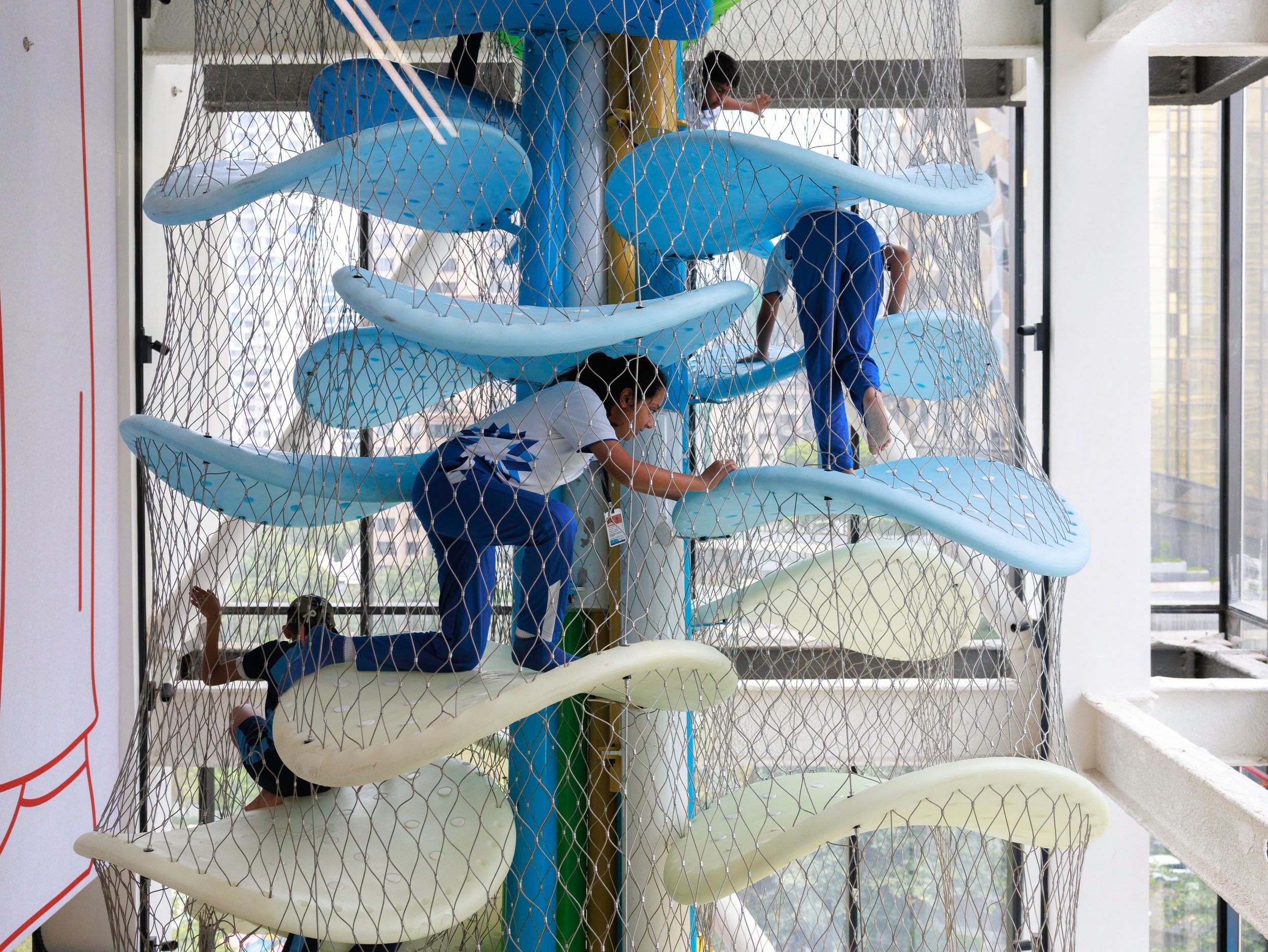
At MuSo, the three-storey Luckey Climber is the most coveted space
MuSo is designed to cater to children ranging from two to 17 years old, with activities and immersive experiences that address issues as pertinent as marine pollution and climate change. The idea is for children to learn on their own terms, through interaction with the exhibits—whether by creating a 3D-printed object or playing on the Luckey Climber, a 30ft tall vertical maze. “We stay away from having a point of view, or making a judgement on what’s right or wrong,” she adds. “Children spend eight hours in the day being told what to do, it’s the same at home. There are no checks here, we want kids to lead the way. We want to be the opposite of school.”
For Jindal Shete, MuSo comes as a natural extension of her interest in education—the NYU graduate worked with the Akanksha Foundation for several years and continues to work with the JSW Foundation on all its education initiatives; she credits a Teach for India fellowship as the single most defining time of her life. “We have eight schools in plant locations and more than 15,000 students. I’m constantly aiming to show them what’s possible and to broaden their exposure.” She is also the force behind Leap Gymnastics, a venture that was inspired by her daughters’ love for the sport and the lack of any quality formal training facilities. In a few short years, the venture has four centres in Mumbai and is opening in Delhi soon.
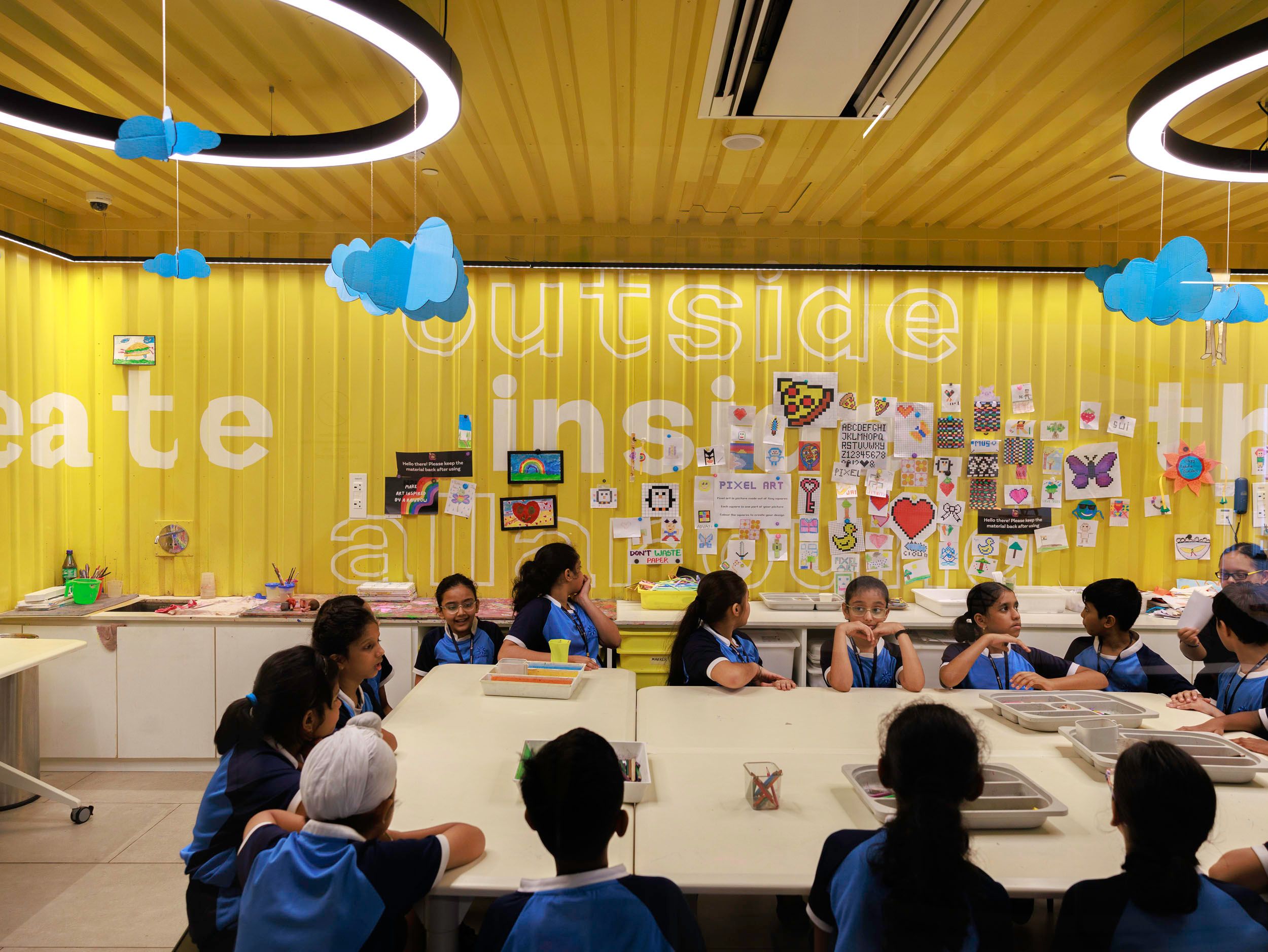
Jindal Shete wants the Museum of Solutions to be the "opposite" of school
As for MuSo, Jindal Shete says it’s been incredible to see how children make memories and connections so organically, and shares a heartwarming story about a workshop on fixing leaky taps, which resulted in one of the students going door to door in his apartment building to help fix any drips. Given the academic rigour and rote learning most of us grew up with, and the intensity of the traditional school system, this is catnip for parents of my generation. Over the past few years, my kids and I have experienced museums ranging from Oli Oli in Dubai and Singapore’s ArtScience Museum to London’s many offerings, and I have to say that MuSo ranks as one of our favourites. My very active four and a half year old is obsessed with the Water Play and Luckey Climber, while my nine-year-old daughter is content in the Art Studio.
Jindal Shete takes the compliment in her stride, reflecting, “I spent a lot of time designing the museum, but did not spend enough time thinking of how to run it.” One of the biggest challenges she’s faced over the past year has been changing mindsets. “We are all so used to instruction. When parents and families come here, they expect guided tours, but our philosophy is really to let kids explore. Parents struggle with that but kids, they find their niche.”
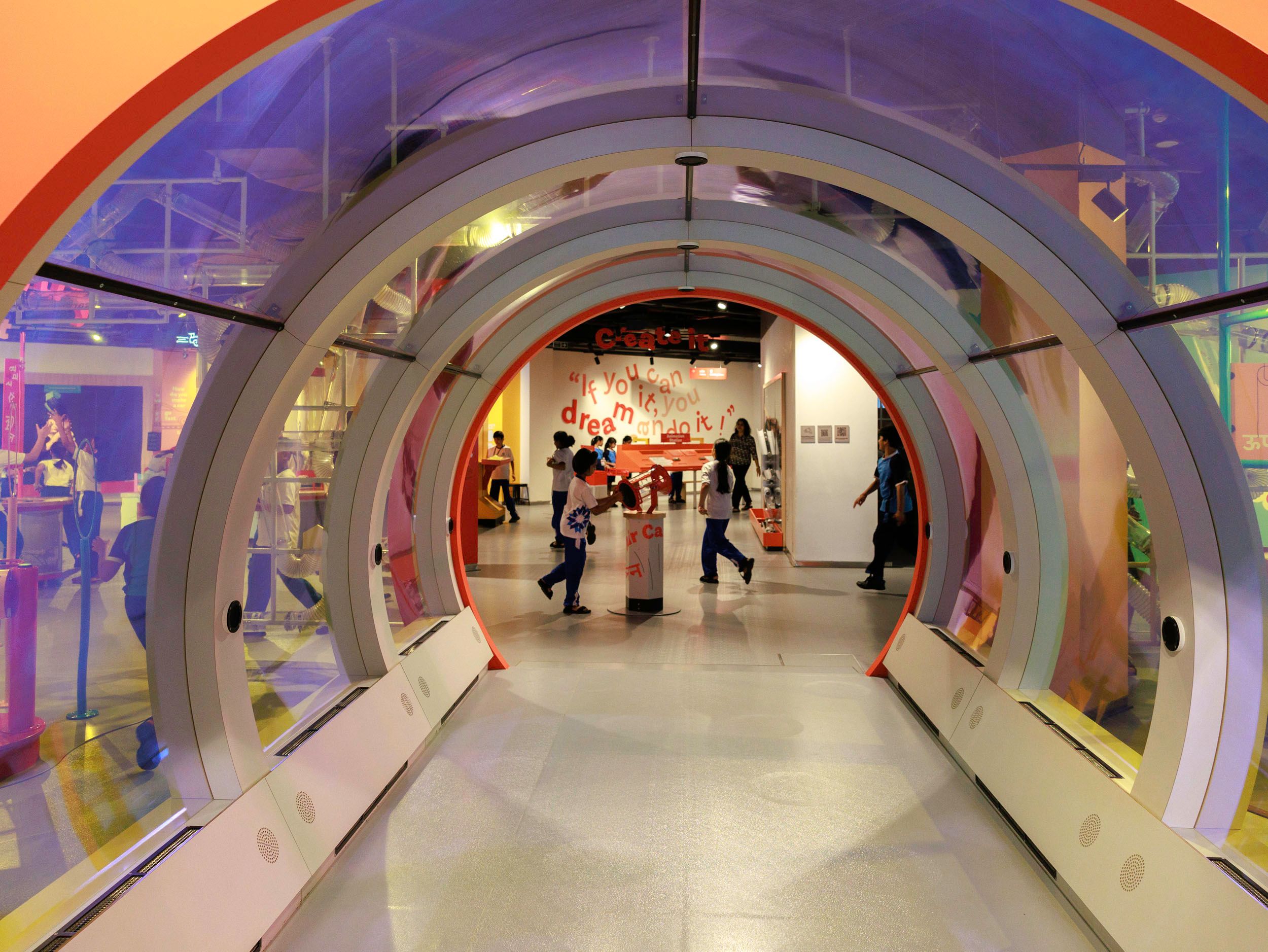
The museum has an eclectic programming roster that includes entrepreneurship camps and book fests
The constant struggle between satisfying old-fashioned parents and staying true to the museum's core philosophy has paved the way for some pretty eclectic programming: there have been entrepreneurship camps (a surprising hit among four to six year olds); clean eating camps run by Whole Truth; and a series of talks on mental health by Snapchat. The space has also hosted book festivals and Puzzle Mania, which brought the grandparents into the mix. Immersive chef-led dinners are on the horizon, and so is a dinosaur exhibit from the Natural History Museum of America. But the sleeper hit has been Adults Night. As per policy, adults can only visit MuSo when accompanied by children, but on one night every month (much like Date Night at The Met or the V&A’s Friday Late), adults are welcome—there’s cocktails, there’s a DJ, and for one night, they are allowed to be children again.
You shouldn’t ask Jindal Shete what’s coming up next—because she will give you an extensive roster. But one to earmark, for kids and adults, is a tribute to the work of Jane Goodall in honour of her 90th birthday this November. I’m sure no matter what MuSo has planned, it’s going to feel like a party.
